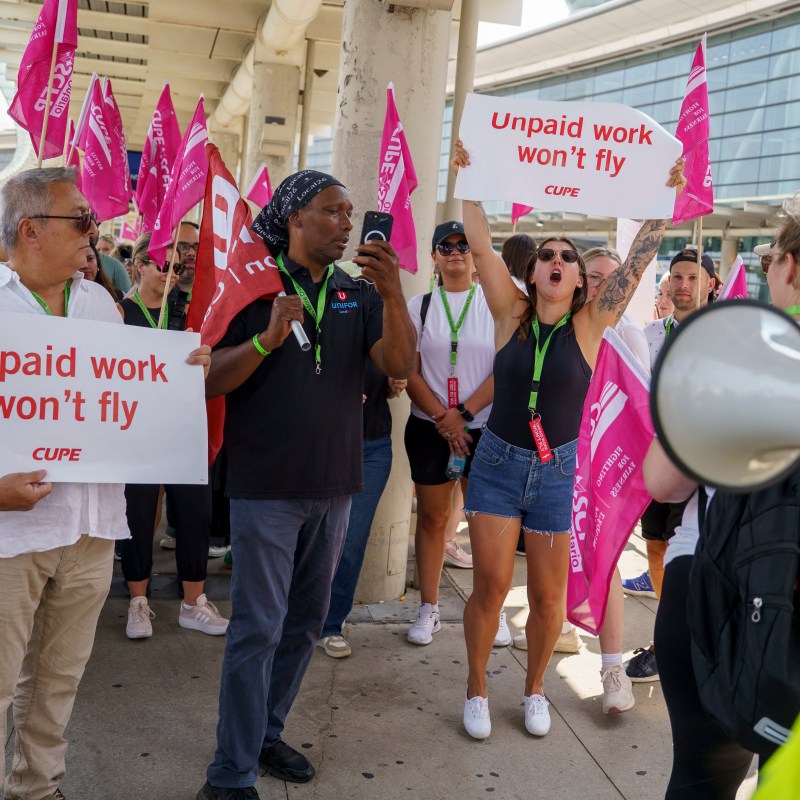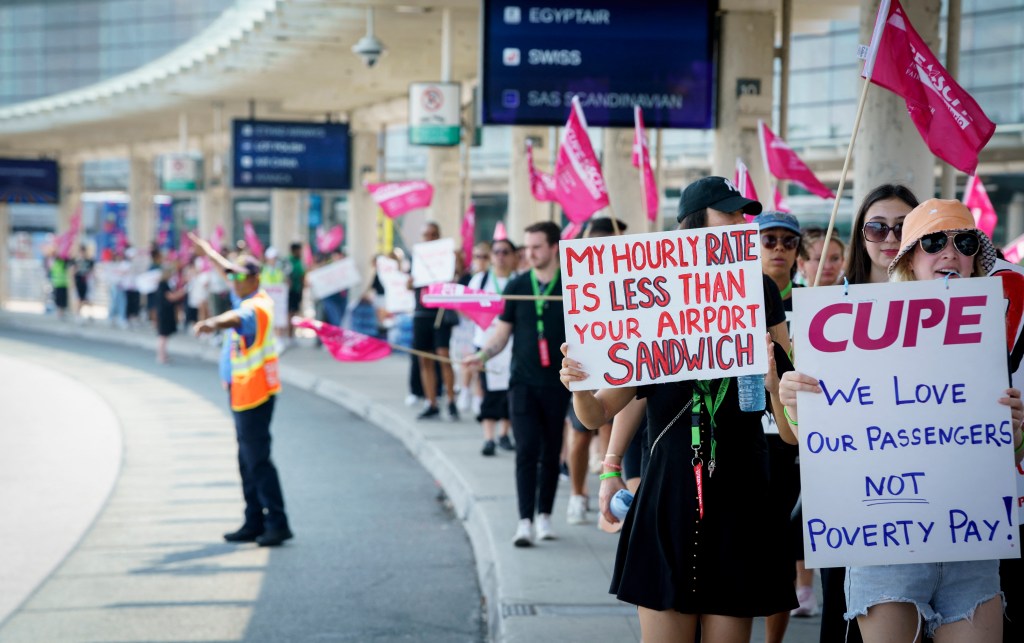
Something unprecedented just happened in Canada—and it revolves around ongoing Air Canada strikes.
Videos by TravelAwaits
Here’s the gist: some 10,000 Air Canada cabin crew workers, who are part of the Canadian Union of Public Employees (CUPE), are demanding that all jobs be paid for on the ground.
Flight attendants who work for Air Canada aren’t paid until the plane starts moving, meaning all that work of boarding passengers and guiding them to their seats isn’t reflected in their paychecks.
The union has been striking since August 13, at which point Air Canada began suspending thousands of flights to cover the labor shortage.
The strike, which was supposed to end after only 72 hours, crept on when no official agreement was struck.
On Saturday, August 17, the country’s Liberal government party called on the Canada Industrial Relations Board (CIRB) to facilitate arbitration between the union and Air Canada. Arbitration, of course, would involve the two parties striking an agreement behind closed doors.
This move to force arbitration after a union-led strike mirrored previous strikes in Canada, including a rail strike in 2024.
But this time, CUPE (representing Air Canada employees) said no. The union refuses to accept arbitration and, as such, Air Canada is still missing the majority of its cabin crew.
The big question is—now what?
What happens next for the Air Canada strike?

It’s highly unprecedented for the CUPE to ignore an official government order. The Liberal Party now has the option of asking judges to force union workers to go back to work or try to pass bipartisan laws that would alter Air Canada’s current air cabin salary agreements.
But CUPE isn’t budging; they don’t want Air Canada to have the upper hand in forced arbitration. Instead, the union hopes to push Air Canada to sign agreements that will pay flight attendants for previously unpaid labor, such as boarding passengers.
New agreements made by American Airlines and Alaska Airlines (in 2024 and 2025, respectively) have set a precedent in the US for similar payment agreements. However, major airlines such as United and Delta still don’t have new contracts in place.
